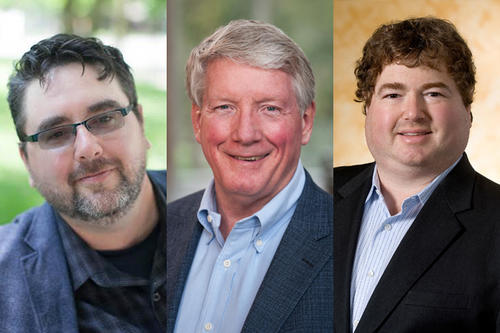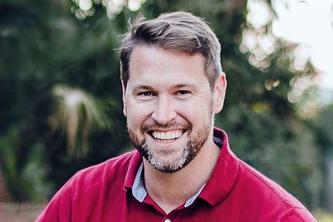
The Federal Communications Commission (FCC) is poised to vote Thursday on dismantling the hotly debated net neutrality regulations put in place by the Obama administration. The rules prevent internet service providers (ISPs) from blocking, slowing down or charging more different types of internet content. University of Minnesota experts – Christopher Terry, Ph.D., Steve Kelley, Senior Fellow, and Joseph Konstan, Ph.D. – weigh in on the laws, policies and technology surrounding net neutrality and what it could ultimately mean for consumers.
Christopher Terry, Ph.D.
"The FCC's vote on Thursday represents a policy change that will fundamentally affect how consumers access content via the internet. Importantly, because ISP's are private companies (rather than state actors) there’s no First Amendment right/defense for citizens to access content they choose."
Christopher Terry is an assistant professor of media law and ethics in the Hubbard School of Journalism and Mass Communication. His research focuses on policy implementation within the Federal Communications Commission, Federal Election Commission and the Federal Trade Commission, and the real-world effects of policies on political communication.
Contact information:
[email protected]
612-626-8516 (office)
262-893-2183 (cell)
Steve Kelley, Senior Fellow
"The commerce involved in the internet today justifies treating internet providers as common carriers, just as telephone companies were previously seen as common carriers. This is even more important when the carriers own content creators, as Comcast does and as AT&T proposes to do with the purchase of Time Warner."
Steve Kelley is a senior fellow at the Humphrey School of Public Affairs. Kelley, a former state legislator and an attorney. Kelley has expertise in state and local government structures; joint powers, telecommunications and information technologies; technology-enhanced education; and rural broadband access.
Contact information:
[email protected]
612-626-6629
Joseph A. Konstan, Ph.D.
“There are three reasons to be concerned about the loss of net neutrality. For most people, the direct concern may be the ability of internet providers to charge more – leading to the need for different ‘packages’ of service for different types of connection.
“A second concern relates to blocking or severely reducing access to some content. While outright blocking seems unlikely, it is possible internet service providers (ISPs) could provide better or worse access based on business relationships.
“Third, if businesses need to negotiate ‘will carry’ agreements with ISPs, then the hurdles to creating new internet businesses become much higher and we will have fewer independent businesses able to succeed.
“ISPs argue regulations add overhead to businesses and prevent them from investing in new services. ISPs also make the consumer-centric argument that unbundling is often exactly what consumers want.”
Joseph A. Konstan, Ph.D., is a Distinguished McKnight Professor in the College of Science and Engineering. He is an expert on human-computer interaction. Dr. Konstan develops and studies technologies related to collaborative and social computing.
Contact information:
[email protected]
612-625-1831
----
University of Minnesota experts can provide commentary, insights and opinions on various news topics. See selected experts on UMN’s Experts Guide or inquire about additional experts via email at [email protected].
- Categories:
- Law and Policy




